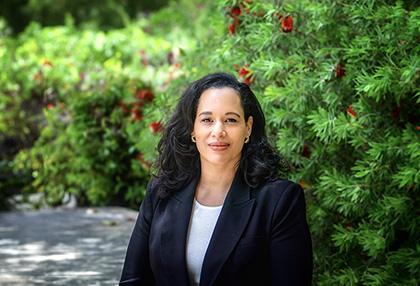
UCLA School of Law professor Anna Spain Bradley, an expert in international law, international dispute resolution, and human rights, has been appointed to the MacArthur Foundation Chair in International Justice and Human Rights at the law school.

UCLA School of Law professor Anna Spain Bradley, an expert in international law, international dispute resolution, and human rights, has been appointed to the MacArthur Foundation Chair in International Justice and Human Rights at the law school.